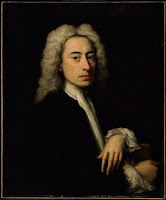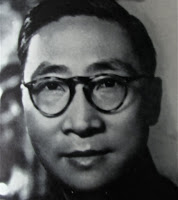Have you noticed how tough life is? It’s hard enough to make it on your own, but try living the Christian life fully and the delusion that doing so is easy should have already crashed down upon you like a Summer thunder storm. That is, if you are giving it your all.
I’m reminded of the sage words of a military genius again. Ever heard of Carl von Clauswitz? Here is something he shared in his classic book on military strategy, On War,
Everything in war is simple, but the simplest thing is difficult. The difficulties accumulate and end by producing a kind of friction that is inconceivable unless one has experienced war.
Sure, you could kid yourself that this doesn’t apply to your life as a Christian. “I’m a civilian,” or so you pretend. But to me, Clauswitz’s thoughts illuminate the truth of the life not only of those “in the world,” but definitely the lives of those of us who struggle mightily to be “not of the world.”
So yesterday morning, for the first time in what seems like ages, I dug into my book bag, pulled out my copy of the Little Office of the Blessed Virgin Mary, flipped to the Friday morning prayers and proceeded to regain my sanity. It wasn’t long before I came across this truth of the Christian life,
Your inmost being must be renewed, and you must put on the new man (Ephesians 4:23).
I always knew that it was work to be a Christian, in the back of my mind. Everything I had learned from studying the Bible while growing up warned that this was true. But somewhere between leaving home and entering the world on my own, I had forgotten this fact. Running away from the truth will do that to you.
St. Paul’s inspired words reminded me of this situation again. You see, in order to “put on the new man,” you have to take off the old man first. And Lord knows, early on I had as much interest in being changed as the next person, which if you are anything like me means practically not at all. I went along with the easy care of “the saved,” while never confronting any of the dark shadows of responsibility that followed me along that road.
In other words, I sought the easy path of the Christian who is a Christian in name only. I professed belief in Christ, had been baptized, and I was “good to go” in that department, or so I thought, and I could concentrate on other more important things like fighting World War III, or striking it rich, you know, all while ignoring the plight of the poor or less fortunate. Talking myself out of my sinfulness, and letting my pride get the best of me and run the show.
I came back to the well of my faith only when I needed help. Like when I was sweating probation when I was trying to make it through Marine Security Guard School in Quantico, or when I was getting ready to graduate from college and I would pray, “Lord, help me find a job.” Prayers such as these are not invalid. They are necessary prayers for the soul to cry out with, as long as they are backed up with the diligent search to find work, etc. But all in all, I was a fair weather Christian and my conscience would needle me on that point from time to time.
Distractions helped me keep from listening to these urgings for the longest time. Have you allowed that to happen? Especially when there is some important project that you know you should be working on, but you put it off and put it off some more in the vain hope that the task would go away on its own accord so you won’t have to face it. But it doesn’t go away, and then you burn the midnight oil cobbling something together that barely passes muster, and just in the nick of time. I didn’t want to live my life like that forever.
As they say, denial is not just a river in Egypt, but I drank deeply from her anyway. But increasingly I noticed that her drafts still left me parched. Despite dying from thirst, it took my almost being killed to put me finally on the path to the Catholic Church. The Lord knows that marrying a Catholic didn’t do this, but it didn’t hurt matters either. Nor did the accident provoke me into an instant, “on the spot” conversion either. It took another 6-7 years before I finally cracked open the door that, by this time, my conscience was banging on loudly and relentlessly. As I’ve written before, the injuries I sustained ended my Marine Corps career, providing me the opportunity to change my (and my family’s) life and lead us I knew not where.
I never thought this tortuous path would lead me to the Catholic Church, but every day I rejoice that it has. I can say that I have no idea what is going on in much of the rest of the Church. Perhaps my brush with the Desert Fathers has inured me to answering the siren call of keeping tabs on all that the Bishops do, or don’t do, for instance. For me, the call to conversion is deeper than playing “inside baseball” with what is going on with Rome and all her players. This particular player is in the game, and not sitting on the bench. I am too busy “work(ing) out my salvation with fear and trembling” to have much time to devote to anything that distracts me from helping me, my family, and you dear readers, from that goal.
I’ve heard it said by some to others (bloggers, etc.), “how could you not know about Father X?,” or “problem XYZ?” or some such line regarding another scandal du jour. You all know that I’ve heard about, and commented on, some events like these in the past. And I’m likely to do so again, in the future. But it will be only if it is something glaringly obvious worth talking about, and by that I mean something that is leading others astray, or that has affected me personally in some way.
The real reason that I don’t follow all the latest newsy stuff is that I am too busy doing the work of “renewing my inmost being” to pay attention to the noise that’s going on outside. This work of taking off the old person and putting on the new one is time consuming. Especially considering that I have other work, and family responsibilities, on top of blogging about the Faith here. But my friend Webster Bull said once that “being Catholic is like walking around with a blazing torch in your hand, one that illuminates everything you encounter” and for me that is the reality.
It is as if the scales have dropped from my own eyes, and I’ve discovered the “beauty ever ancient, beauty ever new” of the Church. It is the vision of a person who was blind once and can now see. Or like after the storm is gone and I see what Noah saw. Even so, I’ll freely admit that the sight I have regained is still one “as looking through a glass, and darkly.” But the Beacon calls me clearly.
And thankfully, as I continue to do the work of renewal, the Divine Optician constantly updates the prescription on my individual looking glass. And did I mention he also carries most of the load? He’s got the big stuff, so I can sweat the small stuff.
 |
| Photo Credit: Michael Belk |


































